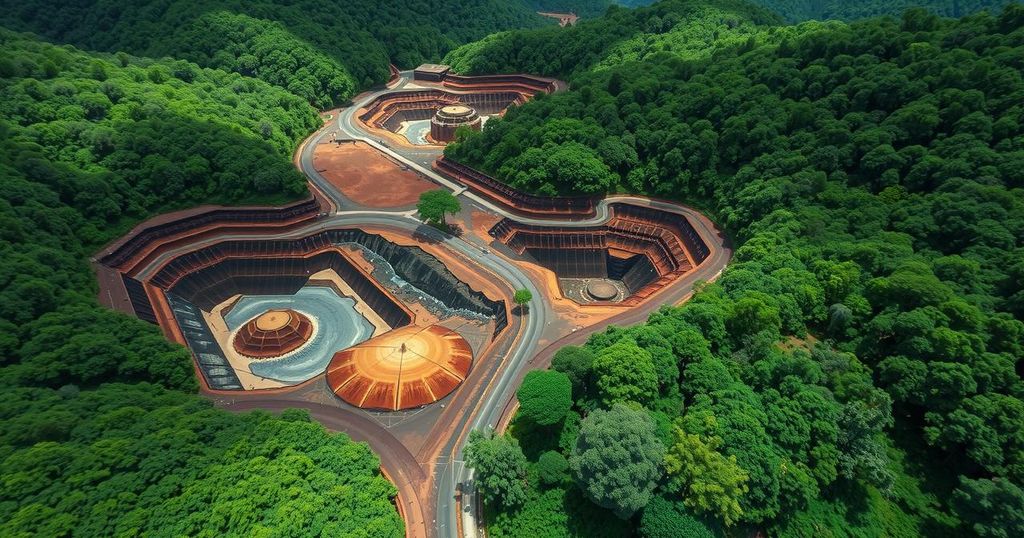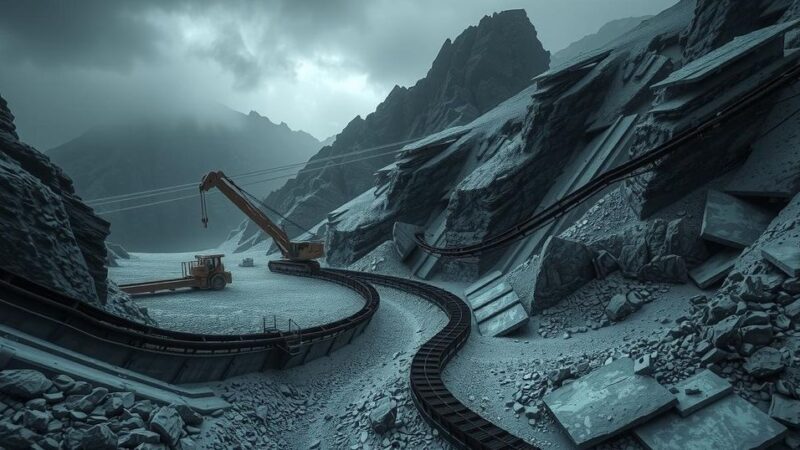China’s illegal mining operations in the DRC, particularly in South Kivu, have fueled conflict and human rights abuses, with over 450 companies exploiting resources. Recent arrests of Chinese nationals involved in illegal mining highlight a lack of governance and accountability. The DRC’s efforts to improve transparency face skepticism without support from the central government amidst ongoing humanitarian crises due to resource exploitation.
The Democratic Republic of Congo (DRC) is facing a crisis of illegal mining operations, primarily spearheaded by foreign nationals, particularly from China. This ongoing issue has persisted since the colonial era and has fueled conflicts that have resulted in the deaths of over 10 million people. The global tech industry’s demand for raw materials sourced from the DRC highlights the stark contradictions between technological advancement and the local human rights situation. This paradox continues to evoke shame on an international level, as transparency within the supply chain remains glaringly absent.
In the South Kivu Province, current estimates show that there are over 450 mining companies predominantly operated by Chinese nationals. Unfortunately, many of these entities are functioning outside the bounds of Congolese mining regulations. The record indicates a surge in conflicts, as armed groups exploit and control mineral-rich areas, exacerbating local vulnerabilities. Recently, in late December 2024, a group of 17 Chinese nationals was arrested for illegal gold mining, only to be released shortly thereafter due to political influence from Kinshasa.
Further complicating matters, on January 4, 2025, authorities apprehended three Chinese individuals in possession of ten gold bars and a substantial cash sum. Such incidents expose a troubling network of money laundering involving local and international players. This occurs amid an alarming backdrop of limited basic services for local populations, where contracts between foreign mining operations and the Congolese government seem to prioritize profit over community welfare and development.
Yet, the mines continue to thrive illegally, providing little benefit to the immediate communities, which are plagued with severe malnutrition rates among children under five and deteriorating environmental conditions. The DRC’s eastern regions are rich in minerals like tin, tantalum, tungsten, and gold, yet locals seem to suffer while foreign entities profit. New governance efforts in South Kivu by recently elected officials, notably Governor Professor Jean-Jacques Purusi, aim to address this. But observers suspect that without significant central government support from Kinshasa and stringent enforcement of regional regulations, progress may stall.
On the international stage, discussions around projects like the Lobito Corridor, funded by the United States and the European Union, seek to improve ethical extraction practices. Concerns linger over whether such initiatives will foster genuine changes in mining practices—will they lead to better jobs, community involvement, and environmental safeguards? Or will they merely reinforce existing patterns of exploitation and neglect?
In conclusion, it is imperative for the Congolese government to establish robust governance measures to eradicate corruption and foster accountability. The onus extends not only to the local leadership but also to international tech companies that thrive on DRC minerals. They must advocate for transparency and human rights throughout the supply chain. The urgent reality is that the brutal extraction of critical minerals has only deepened conflict within the DRC for decades, emphasizing the need for collective action to address the humanitarian crises unfolding within its borders.
The ongoing illegal mining operations in the DRC, particularly in the South Kivu Province, highlight the intersection of exploitation, human rights abuses, and international complicity in these practices. Increased transparency and accountability are essential if the Congolese government is to break the cycle of corruption. As the global demand for critical minerals rises, the commitment of all stakeholders to ethical practices will be crucial in reshaping the future for local communities in the DRC. Without such changes, the dire humanitarian situation is unlikely to improve.
Original Source: www.hks.harvard.edu






